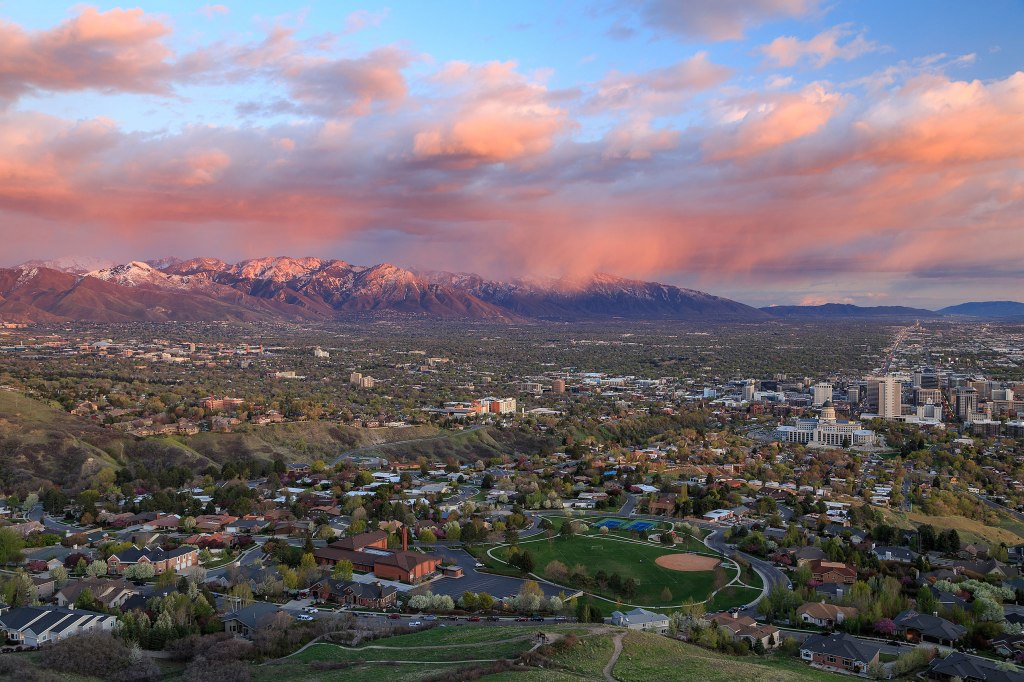Silicon Valley has traditionally been the startup Garden of Eden, but it’s no longer the only game in town. Utah — specifically Salt Lake City and its ecosystem — has become a formidable breeding ground for startups, even developing its own unicorn herd.
As in nature, a startup’s habitat can shape a creative and fiercely competitive ecosystem. Such is the case in Salt Lake City, where investors have significantly less money as a whole, yet their investment per-deal averages outpace Silicon Valley, New York, Los Angeles and almost every other startup hub in the country.
No one knows the potential impact of the Silicon Valley bubble bursting, but one thing’s for sure — it’s no longer enough to set up shop in Silicon Valley and have a good idea and some cash. Startup success is greatly affected by what your ecosystem exposes in the way of available resources (both human and financial capital), partnership and market opportunities and, of course, local market conditions.
More money, more problems
Relative to Silicon Valley, Utah sees far less investment from VCs. In Q1 of 2015, Utah companies raised $200 million compared to Silicon Valley’s $5.05 billion. While more money is rarely a bad thing, in this case it’s already having a negative effect on the Silicon Valley ecosystem. More money in a fund generally means more LPs that VC and private equity investors have to please.
Silicon Valley LPs demand a higher investment clip and returns at a faster rate, which forces venture capital to be more aggressive in their placements. As a result, Silicon Valley companies may be more likely to get funded, but they risk quickly becoming early-stage companies with underdeveloped financial controls and mechanics.
In Utah there is less aggregate investment (though last year Kickstart Seed Fund set a state record). Less available financial capital creates an environment in which local VC and seed funds are more selective. They are able to exercise patience and fund more fully developed companies, focus less on burn rate and growth trajectory and instead home in on companies with a proven market, earlier recurring revenue and a clear path to profitability.
Keep Utah weird
Utah is peculiar for many reasons: its location (a lush valley in the middle of a desert), its people (plenty of young, ambitious talent from BYU and University of Utah) and its workforce (one-third of the state’s workforce is bilingual). From the outside it can be tough to spot the draw — restaurants close early, it’s wicked hot in the summer and Hoth-cold in the winter — but people who are from here call it home, and people who move here love it. Indeed, Utah is growing at twice the rate of the rest of the U.S. population.
Housing is super cheap compared to most major cities. A mortgage payment on a nice, four-bedroom home will cost you less each month than your rent for that one-bedroom, coffin-sized apartment in the Bay Area. The same goes for business expenses — office leasing, employee costs, commuting, etc. These are crucial things to consider, but a firm shouldn’t spend all its cash on setting up shop.
Unicorn breeding ahead
Silicon Valley has dozens of unicorns, and this makes sense. The Valley is like the cradle of civilization for startups and technology companies. As the startup scene took off in the 1990s and 2000s, a critical mass of workers with the appropriate skill sets found themselves in close proximity to each other, helping companies quickly and easily grow and scale, fill sales pipelines and bring more general network effects.
Provo/Orem, home to stone-cold-sober BYU, now features three multi-billion-dollar companies essentially next door to each other. The Associated Press ranked the Provo/Orem area No. 8 in the top 20 cities for startup funding (the Salt Lake City/Ogden area was ranked No. 12), and BYU was featured as No. 7 on the list of schools that have spawned the most unicorn startups.
Conclusion
Utah is proof that a desert wasteland can harvest startups and grow them into multi-billion-dollar companies. Whether or not a tech bubble exists, the companies that make it through will likely have been brutally vetted by VCs, will have founders who believe in constrained creativity and run lean and that quickly found product/market fit and a successful model.
Seeing this happen in markets outside the Bay Area is fairly new — at least within the technology startup scene. The Bay Area used to be the de facto answer for “Where should I launch my tech startup?” — but it’s becoming less and less important to set up shop in the Valley. From everything we’re seeing, it may be a better strategy to go find gold in them thar hills.






